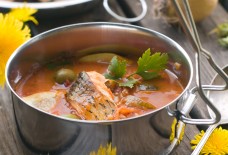Mashrou’ Leila’s gay, Muslim singer speaks out against hate ahead of Los Angeles concert
By Michelle Mills
SGVTRIBUNE.com
In the wake of the horrific shooting at the Orlando gay nightclub Pulse, Hamed Sinno, lead vocalist of the band Mashrou’ Leila, spoke out on Twitter.
“What a time to be an Arab-American queer Muslim,” Sinno, referring to himself, posted to his account June 12. “F— hate. My heart is with the families of the victims. I wish you strength and clarity.”
Based in Beirut, Mashrou’ Leila is controversial for its songs about sexual and religious freedom. Earlier this year, the band’s scheduled concert in Jordan was shut down by the government, which later backtracked after fans spoke out, but only after it was too late for the men to perform.
Mashrou’ Leila is currently on tour in the United States, and will be in concert 8 p.m. June 17 at Grand Performances at California Plaza in Los Angeles.
Sinno spoke out about the Orlando attack during the band’s sold-out show at The Hamilton in Washington, D.C. on June 13.
“Suddenly, just because you’re brown and queer you can’t mourn, and it’s really not f—ing fair,” Sinno said according to a CNN report. “There are a bunch of us who are queer who feel assaulted by that attack who can’t mourn because we’re also from Muslim families and we exist … this is what it looks like to be called both a terrorist and a f—-t.”
HOW THEY CAME TO L.A.
Grand Performances director of programming Leigh Ann Hahn first saw them when they performed in a showcase during an international music conference in Morocco in 2014.
“I saw them play and I knew that they were perfect for us,” Hahn said in an interview conducted before the Orlando shootings. “Their music is so accessible even whether you understand the lyrics or not. It’s just filled with really great melodic hooks, the rhythms and the textures are really great and layered and you want to listen. You hear one song and you want to hear more.”
Mashrou’ Leila, vocalist Sinno, violinist Haig Papazian, drummer Carl Gerges, guitarist Firas About Fakher and bassist Ibrahim Badr, formed in 2008 as a music workshop at the American University of Beirut. Encouraged by friends, they began playing small venues and soon got a set in the annual Fete de la Musique (Make Music Day). In 2009 they won a number of awards in Radio Liban’s Modern Music Contest. Mashrou’ Leila’s 2015 album, “Ibn El Leil,” hit number 11 on the international world Billboard Charts.
Mashrou’ Leila’s lyrics are in Arabic, but this hasn’t been an obstacle says Sinno.
“I think live performance has been a really big part of what’s been pushing us in countries that don’t necessarily speak Arabic,” Sinno said in an interview conducted before the Orlando shootings. “We’re a little dramatic on stage. We’re very much aware that it’s a performance and we need to bridge the absence of linguistic communication. I also think that a lot of people are open to listening to music where the lyrics aren’t decipherable to them.”
ONE VOICE AMONG MANY
Mashrou’ Leila’s lyrics have been called brazen, but Sinno doesn’t agree.
“The stuff that we write about never really seems particularly controversial to any of us,” Sinno said. “We just write about the stuff we discuss with our friends, the stuff that we’re interested in. I don’t think that stuff is necessarily more sensitive where we’re from than anywhere else.”
Sinno said that the Western media often fails to recognize that they are just one of many voices addressing social injustice.
“There are thousands of people in prisons across the Middle East because of voicing dissent and taking up action against government and society. It’s almost unfair that these people are being represented by a group of five upper middle-class males from Beirut, of all places. It feels like part of a longer history of coming up with perfect narratives about the Middle East. They’ve come up with this sort of archetypal brown person. It’s like there’s only one story throughout the Middle East,” Sinno said.
Sinno said that the real key to Mashrou’ Leila’s success is their musical composition and internet savvy.
“(Music) got very formulated and the lack of alternative options was essentially what drove us to start making music in Arabic in the first place. That I thought something was missing meant that other people thought that,” Sinno said. “We got to use social media to bypass the mainstream music dissemination and a lot of people wanted to hear something that sounded not exactly like the cultural formula that was there everywhere else.”
UPCOMING SHOWS
Mashrou’ Leila has a few dates left on its North American tour in support of “Ibn El Leil,” including stops in San Diego and New York City.
Source: www.sgvtribune.com



